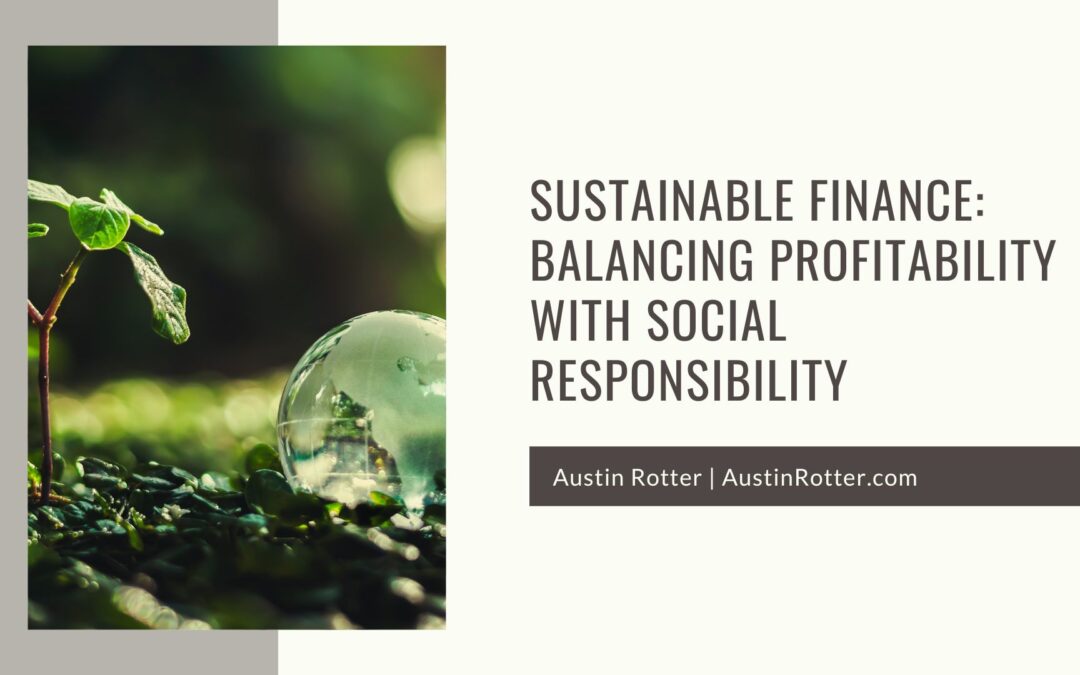In today’s rapidly changing business landscape, the concept of sustainability has gained widespread recognition as a key driver of long-term success and resilience. Sustainable finance, also known as ethical, responsible, or green finance, is a financial approach that seeks to balance profitability with social and environmental responsibility. By integrating environmental, social, and governance (ESG) criteria into investment decisions and financing activities, sustainable finance aims to create a positive impact while generating financial returns. Let’s explore how sustainable finance enables businesses to balance profitability with social responsibility:
Environmental Responsibility:
Sustainable finance prioritizes environmental responsibility by promoting investments in projects, businesses, and initiatives that minimize negative environmental impact and promote environmental stewardship. This includes financing renewable energy projects, green infrastructure development, energy-efficient technologies, and sustainable agriculture practices. By allocating capital towards environmentally sustainable initiatives, sustainable finance helps mitigate climate change, preserve natural resources, and build a more sustainable future for generations to come.
Social Responsibility:
In addition to environmental considerations, sustainable finance also emphasizes social responsibility by supporting investments that promote social equity, inclusivity, and community development. This includes financing projects that address social challenges such as poverty alleviation, access to education and healthcare, affordable housing, and job creation. By investing in socially responsible initiatives, sustainable finance contributes to the well-being and prosperity of communities, fostering economic empowerment and social cohesion.
Governance Practices:
Sustainable finance evaluates governance practices within businesses and organizations to ensure transparency, accountability, and ethical conduct. This includes assessing factors such as board diversity, executive compensation, shareholder rights, and adherence to ethical standards and regulatory compliance. By promoting good governance practices, sustainable finance helps mitigate operational risks, enhance corporate reputation, and build trust among stakeholders, investors, and the broader community.
Long-Term Value Creation:
Sustainable finance takes a long-term perspective on value creation, recognizing that environmental and social factors can impact business performance and profitability over time. By integrating ESG criteria into investment decisions and financing activities, sustainable finance seeks to identify opportunities that generate sustainable, resilient, and inclusive growth while minimizing risks and externalities. By aligning financial goals with broader societal and environmental objectives, sustainable finance enables businesses to create long-term value for shareholders, stakeholders, and society as a whole.
Risk Management:
Sustainable finance incorporates risk management principles that recognize the interconnectedness of environmental, social, and governance risks with financial risks. By identifying and assessing ESG risks, such as climate change, social unrest, regulatory changes, and reputational risks, sustainable finance enables businesses to mitigate potential threats and capitalize on opportunities that arise from sustainable practices and responsible business conduct.
In conclusion, sustainable finance offers a holistic approach to balancing profitability with social and environmental responsibility. By integrating environmental, social, and governance considerations into investment decisions and financing activities, sustainable finance enables businesses to create a positive impact while generating financial returns. By embracing sustainable finance principles, businesses can build resilience, enhance competitiveness, and contribute to a more sustainable and equitable future for all.
